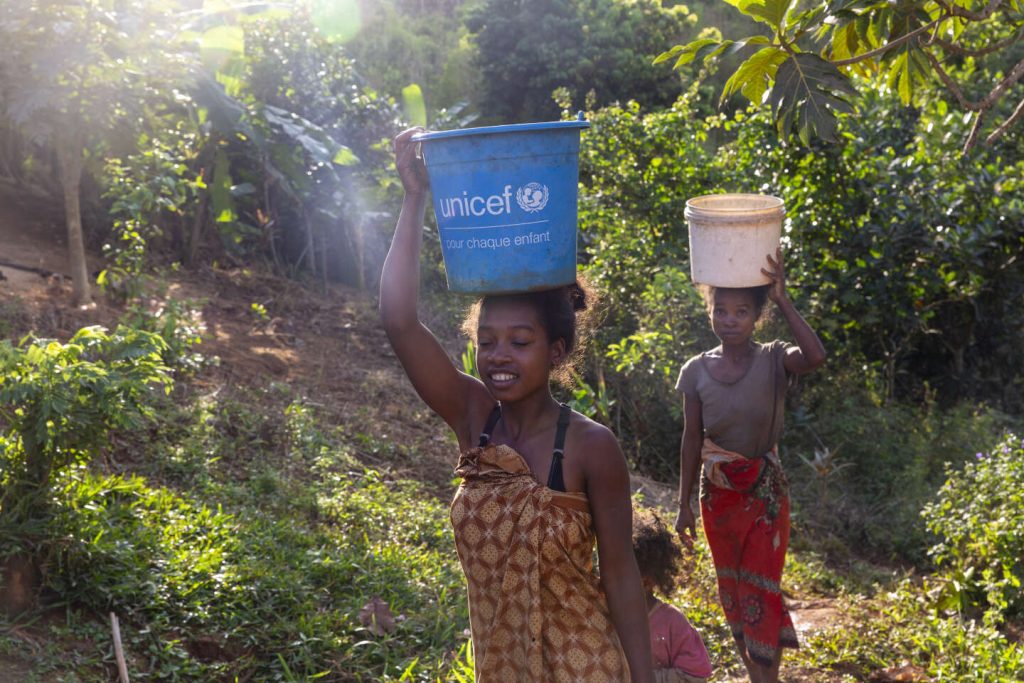In East Madagascar, women are seen carrying water back to their village, a region that has been hit multiple times by cyclones in 2022. This image highlights the struggles faced by communities in the wake of climate change impacts. This content is part of the newsletter “Chaleur Humaine,” sent out every Tuesday at 12 o’clock. The journalist Nabil Wakim, who hosts the Chaleur Humaine podcast, answers questions from viewers about the climate challenge each week. Readers can sign up for free to receive this newsletter.
A viewer named Marie posed a question about the intersection of gender and climate change, specifically asking why women are disproportionately affected by climate change compared to men. In response to this question, Ynès Khoudi from Le Monde’s Planète department addresses the issue. Khoudi explains that while the climate crisis will impact all humans on the planet, not everyone is equally vulnerable to its effects. Women, especially those living in Southern countries, are particularly at risk of being negatively impacted by the multiplying effects of climate change.
One of the key points made is that climate change exacerbates existing inequalities. Extreme weather events such as heatwaves, droughts, and storms tend to disproportionately affect the poorest, women, and younger individuals. This is due to the fact that those who face discrimination are often less equipped to deal with dangerous situations, making them more vulnerable to the impacts of climate change. For example, 80% of climate-displaced persons are women, as reported by the UN. Additionally, studies have shown how violence against women increases in the aftermath of climate disasters, with restricted access to resources leading to heightened insecurity, including food insecurity, and strained family dynamics.
Furthermore, the limited access to resources can result in various forms of gender-based violence, such as domestic violence, forced early marriages of young girls in some countries to reduce the number of mouths to feed, and increased instances of sexual violence and human trafficking. These negative consequences highlight the urgent need to address gender disparities in the context of climate change and to promote gender-responsive policies and programs to protect and empower women facing such challenges. Addressing these issues is essential for ensuring a more equitable and sustainable future for all individuals, regardless of gender or other social factors.
In conclusion, it is clear that the impacts of climate change are not gender-neutral, with women facing heightened risks and vulnerabilities in the face of environmental disasters. Efforts must be made to address and mitigate these inequalities, ensuring that women are empowered and supported in the face of climate challenges. By recognizing the intersectional nature of climate change impacts, we can work towards a more just and sustainable future for all individuals, regardless of gender or other social identities.















